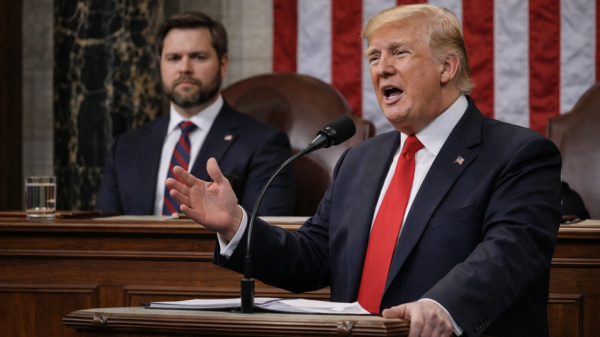A political earthquake has rocked Japan to start the new trading week, as Prime Minister Shigeru Ishiba’s shock announcement that he will step down sent a jolt through currency and equity markets.
This dramatic development is unfolding against a tense global backdrop, where a surprisingly weak US jobs report has intensified speculation that the Federal Reserve is on the verge of a major policy pivot, leaving investors to navigate a landscape of profound and competing uncertainties.
The Ishiba effect: a plunging yen, a soaring Nikkei
The market reaction to Ishiba’s resignation was immediate and severe. The Japanese yen, a traditional safe haven, fell as much as 0.7 percent against the dollar as a new wave of political uncertainty washed over the nation.
But in the paradoxical world of Japanese markets, the currency’s pain was the stock market’s gain.
The weaker yen provided a powerful tailwind for the country’s export-heavy companies, sending the Nikkei 225 index soaring.
While the resignation ends a tenure that was marred by bruising election results, it leaves Japan’s fiscal direction in a state of limbo.
“Ishiba’s step-down can be seen as a sign that the party is ready to move on to the next leader, who will bring stability for the longer term,” said Anna Wu, a cross-asset strategist at VanEck.
So while in the immediate term yen and bonds felt pressure, equities are seeing more hope than uncertainty.
The lingering shadow of the Fed
While Japan grapples with its own domestic drama, the entire region is still operating in the long shadow of Friday’s US jobs report.
The weaker-than-expected payrolls number sent a powerful signal that the American labor market is rapidly cooling, a development that caused the dollar to fall and Treasuries to rally as bets on a Federal Reserve interest-rate cut intensified.
That speculation is now reaching a fever pitch. Strategists at Commonwealth Bank of Australia noted that the market’s focus on the labor market could lead to a dramatic repricing of expectations.
“Given the focus on the labor market in FOMC chair Powell’s recent speech, market participants may increase pricing of a 50 basis point cut to the Funds rate next week,” they wrote in a note.
A region of divergence
This potent mix of Japanese political turmoil and American economic weakness is creating a deeply divided picture across the rest of Asia. Australian stocks fell in early trading, tracking the negative close on Wall Street from Friday.
In contrast, shares in mainland China and Hong Kong climbed, as investors looked ahead to crucial trade data and a report that Beijing is considering allowing Russian energy firms to resume issuing yuan-denominated bonds.
A positive start for Dalal Street
In a sign of resilient domestic sentiment, the Indian market is poised to buck the more cautious trend and open higher on Monday.
The trends on the Gift Nifty indicated a positive start, with the index trading around the 24,911 level, a premium of nearly 63 points.
This comes after the market ended the previous week on a flat note amid profit booking, with the Sensex and Nifty holding their ground but failing to make significant headway.
Now, as a new and uncertain week begins, the bulls on Dalal Street appear ready to make another charge.
The post Asian markets open: Nikkei rises as yen falls after Japan PM resigns; Sensex to open higher appeared first on Invezz




































